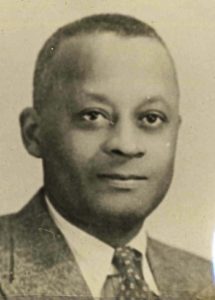
Eric Walrond
*On this date, in 1898, Eric Walrond was born. He was an Afro Guyanese writer and journalist.
Eric Derwent Walrond was born in Georgetown, British Guiana, to a Barbadian mother and a Guyanese father. When he was eight, his family moved to live with relatives in Barbados, where he attended St. Stephen's Boys' School, then Panama when the Panama Canal was being constructed. Here, Walrond completed his education and became fluent in Spanish and English. Following training as a secretary and stenographer, he was employed as a clerk in the Health Department of the Canal Commission at Cristóbal and as a reporter for the Panama Star-Herald newspaper.
In 1918, he moved to New York, where he attended Columbia University, where Dorothy Scarborough tutored him. He was a member of the Alpha Phi Alpha fraternity. Walrond did not last long in publishing his work; he moved to England. While a poet during the Harlem Renaissance, he worked in other jobs. His utopian sketch of a united Africa, "A Senator's Memoirs" (1921), won a prize sponsored by Marcus Garvey. From 1921 to 1923, Walrond was editor and co-owner of an African American weekly called the Brooklyn and Long Island Informer. He was then hired as associate editor (1923–25) of Negro World, the paper of Garvey's Universal Negro Improvement Association (UNIA).
He became a protégé of the National Urban League's director, Charles S. Johnson. Between 1925 and 1927, he was a contributor to and business manager of the Urban League's Opportunity magazine. Walrond published his first piece called “The Palm Porch,” this poem describes a Brothel in the Canal Zone, where a merciless plot to take over the land takes place. His short stories included "On Being Black" (1922), "On Being a Domestic" (1923), "Miss Kenny's Marriage" (1923), "The Stone Rebounds" (1923), "Vignettes of the Dusk" (1924), "The Black City" (1924), and "City Love" (1927).
In two consecutive years (1928 and 1929), Walrond was awarded the Guggenheim Fellowship for Fiction. He made a lasting contribution to literature; his most famous book, Tropic Death, was published in New York City in 1926 when he was 28; it remains in print today as a classic of its era. Much of the dialogue between Walrond's characters is written in dialect, using the many different tongues loosely centered on the English language to portray the diversity of characters associated with the pan-Caribbean diaspora. Eric D. Walrond died on August 8,1966.